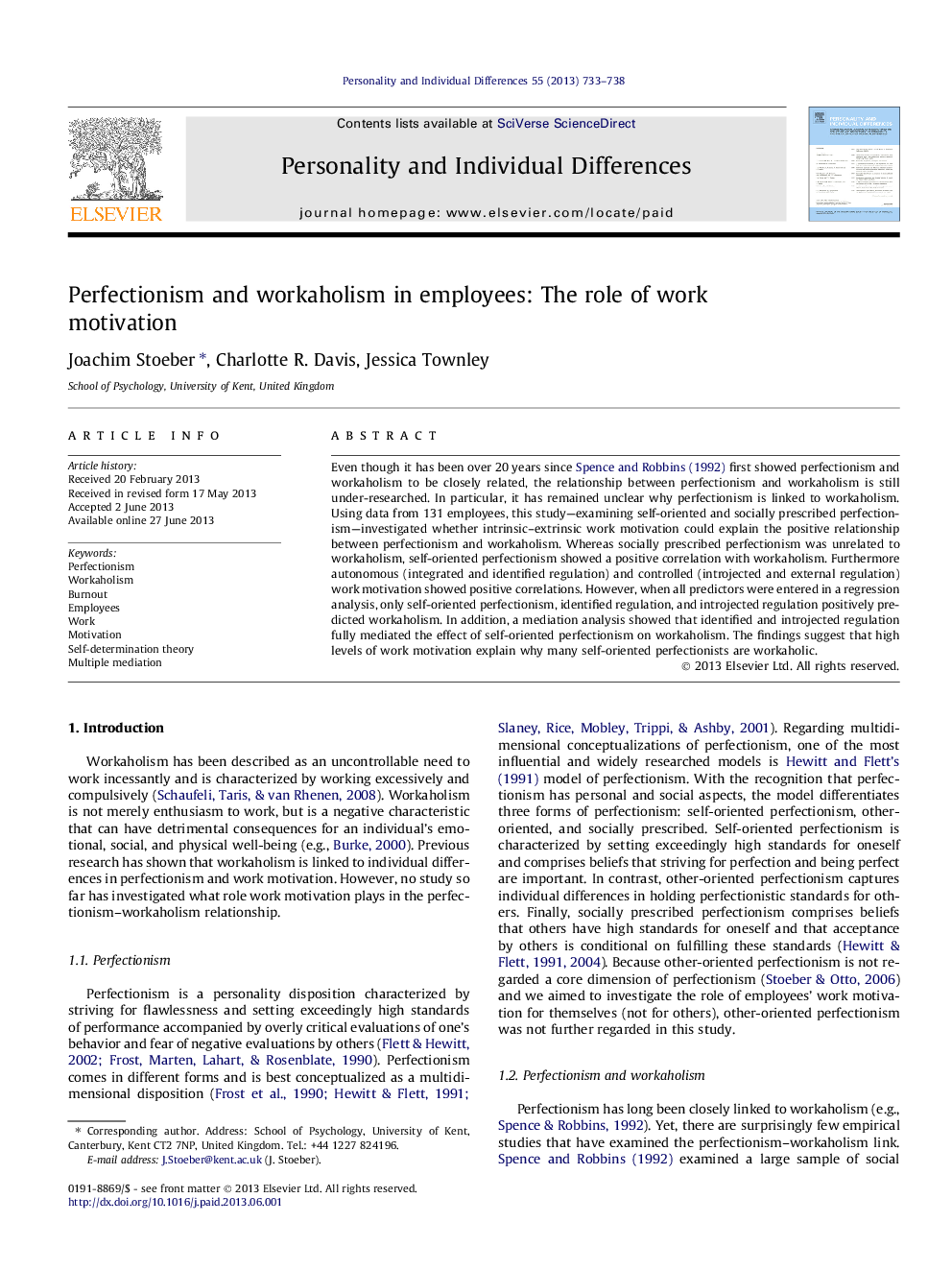| Article ID | Journal | Published Year | Pages | File Type |
|---|---|---|---|---|
| 10440394 | Personality and Individual Differences | 2013 | 6 Pages |
Abstract
Even though it has been over 20 years since Spence and Robbins (1992) first showed perfectionism and workaholism to be closely related, the relationship between perfectionism and workaholism is still under-researched. In particular, it has remained unclear why perfectionism is linked to workaholism. Using data from 131 employees, this study—examining self-oriented and socially prescribed perfectionism—investigated whether intrinsic–extrinsic work motivation could explain the positive relationship between perfectionism and workaholism. Whereas socially prescribed perfectionism was unrelated to workaholism, self-oriented perfectionism showed a positive correlation with workaholism. Furthermore autonomous (integrated and identified regulation) and controlled (introjected and external regulation) work motivation showed positive correlations. However, when all predictors were entered in a regression analysis, only self-oriented perfectionism, identified regulation, and introjected regulation positively predicted workaholism. In addition, a mediation analysis showed that identified and introjected regulation fully mediated the effect of self-oriented perfectionism on workaholism. The findings suggest that high levels of work motivation explain why many self-oriented perfectionists are workaholic.
Keywords
Related Topics
Life Sciences
Neuroscience
Behavioral Neuroscience
Authors
Joachim Stoeber, Charlotte R. Davis, Jessica Townley,
